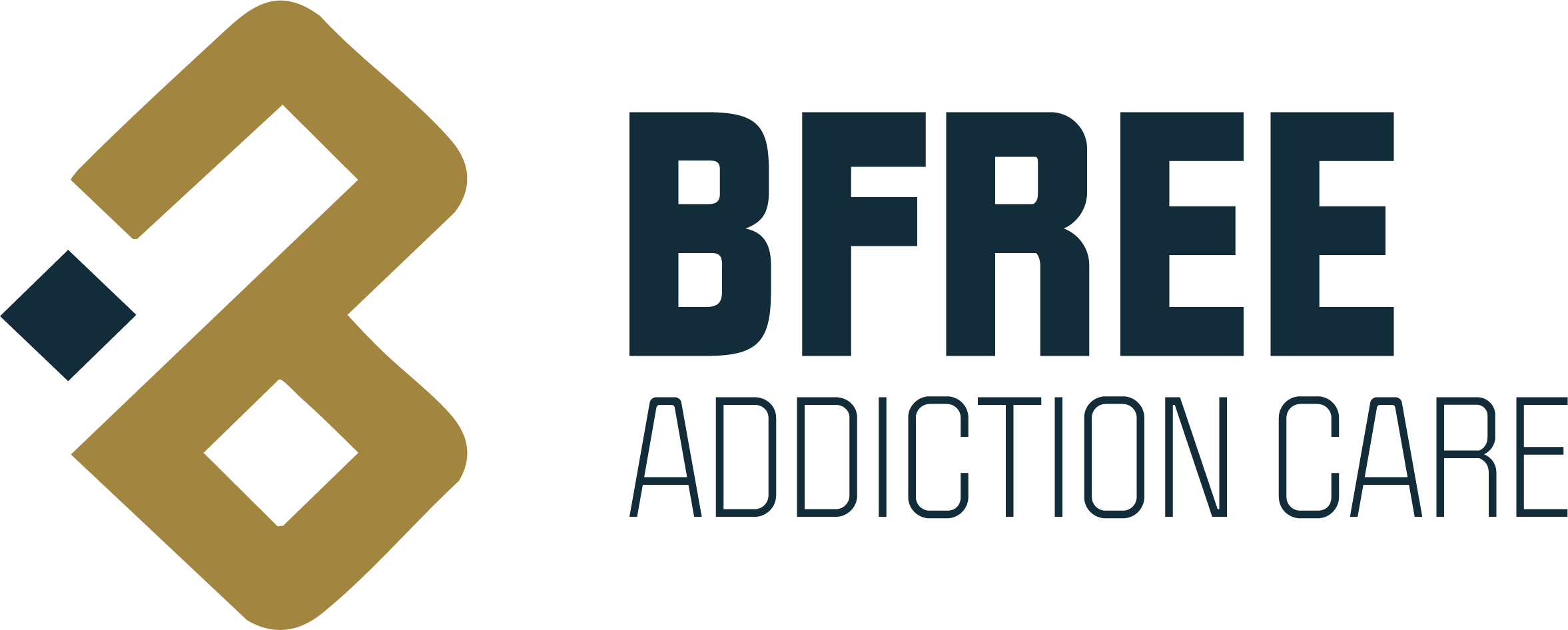Cognitive behavioural therapy (CBT)
CBT focuses on the thinking, feeling and behavioural patterns that perpetuate the patient’s disorder. This therapy can be applied to a variety of issues. The resulting problem-solving therapy ensures patients learn and apply new strategies to handle or counteract negative patterns. Within the treatment programme, cognitive behavioural therapy is offered in both group and individual sessions.
Psychoeducation (PE)
PE provides the patient and/or their loved ones with information and raises their awareness of mental illness, including how to handle its limitations and consequences. The objective is to inform the patient and/or their loved ones about (self-)destructive behaviour as a means of creating space for acceptance and change. Within the treatment programme, Psychoeducation is offered in both group and individual sessions.
Relapse prevention (RP)
RP is about stopping the patient from reverting to old habits. A relapse is when a recovering addict returns to their former escapism-based behaviour to avoid pain, emotion, anxiety, distress or depression. Preventing relapses is a basic healthcare strategy for clients battling substance abuse, gaming or gambling. Avoiding alcohol, drugs, medication, gambling or gaming abuse is often a process that involves a certain amount of unpredictability. Relapses can be part of the process. Within the treatment programme, relapse prevention is offered in both group and individual sessions.
Mindfulness Based Cognitive Therapy (MBCT)
MBCT is a form of training that combines meditation techniques with cognitive behavioural therapy. Academic research has demonstrated that MBCT helps patients deal with setbacks and decreases the risk of a relapse. It consists of paying active, open-minded attention in the present to everything that happens inside us and in our surroundings. Acceptance plays an important role, paying attention to thoughts and feelings without judgement, that is, without deciding whether they are good or bad. Within the treatment programme, mindfulness-based cognitive therapy is offered in both group and individual sessions.
Community Reinforcement Approach (CRA)
CRA combines cognitive behavioural therapy and systemic therapy to reduce addiction behaviour by reinforcing healthy, rewarding alternatives and decreasing factors that sustain substance use. The objective of CRA is to reduce the use of alcohol and/or drugs, decrease disease burden and improve quality of life. Within the treatment programme, the community reinforcement approach is offered in both group and individual sessions.
Acceptance and Commitment Therapy (ACT)
ACT is a scientifically substantiated behavioural therapy that helps the patient deal with obstacles (acceptance) so they can continually invest in what they believe is really important (commitment). Within the treatment programme, acceptance and commitment therapy is offered in both group and individual sessions.
Systemic therapy (ST)
The objective of ST is to help the patient process their condition within a wider group, including in relation to family members, friends and the community. This therapy emphasizes the importance of family or support systems in the recovery process and has a positive effect on both the client and their family, loved ones and community. The advantages of ST include a better understanding of other people and more empathy for them, improved problem-solving skills, more functional communities and more effective communications. Within the treatment programme, systemic therapy is offered individually.
Motivational group therapy (MGT)
MGT is a patient-oriented directive method that aims to stimulate the patient’s intrinsic motivation to change by exploring and resolving ambivalence. Within the treatment programme, motivational group therapy is offered in groups.
Expressive arts therapy (EAT)
EAT is the umbrella name for therapy where the patient takes part in sculpting, dance, music, psychomotor and play therapy. It’s an alternative method to treat psychosocial and psychiatric problems. Rather than focussing on talking, this type of therapy is about doing and experiencing. The patient gains different experiences during the treatment. These lead to new skills and insights that the patient can apply in their daily life including emotional, cognitive, social and physical skills. Expressive arts therapy is used in group sessions within the B-Free Addiction Care treatment programme.
Cue exposure therapy (CET)
CET is a behavioural therapy method to treat addiction that consists of the patient being exposed to cues and then a supervisor preventing their habitual response, such as taking a substance. Under supervision, the client is repeatedly exposed to triggers connected to the use of alcohol or drugs. This exposure will help extinguish the drive, urge or need for the substance, potentially reducing the number of relapses. Within the treatment programme, Cue exposure therapy is offered in both group and individual sessions.
Reading and writing therapy (RWT)
Patients are given reading and writing assignments to work on after therapy sessions because this has a strong positive influence on changing how the patient thinks and behaves. The writing assignments help them think about their behaviour, which in turn raises their awareness of it and increases their willingness to change it. Reading and writing assignments are custom-designed and are assigned to each patient individually. Their topics may be related to subjects discussed during one-to-one conversations with the patient. They may also be based on behaviour the therapists have observed.

